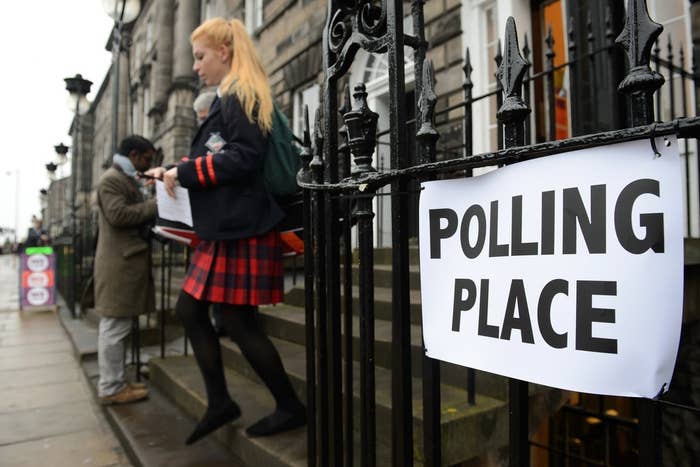
Ministers are planning to use an arcane parliamentary device to block plans to give 16- and 17-year-olds a vote in the EU referendum.
Peers voted in favour of giving votes at 16 last month, but a Commons vote tomorrow is expected to overturn the decision, as the Conservatives are against extending the franchise.
It was previously expected that the amendent would bounce between the Lords and the Commons until one of the sides conceded defeat.
But it has emerged that foreign secretary Philip Hammond is instead using an obscure technicality to ensure peers are unable to overturn the decision made in the Commons.
By making the bill a "money resolution", the government will strip peers of the ability to block it. Labour is now clarifying the move and checking whether there are any other ways it can press the government on the issue.
Pat McFadden, a shadow foreign minister, said the constitutional device, known as "giving financial privilege", was not raised when the voting age was reduced to 16 for the Scottish referendum. He accused the government of denying "a full and proper debate".
"This important issue of policy should not become wrapped up in the government's wider campaign to neuter the House of Lords," he said. "Rather than hiding behind this constitutional device, ministers should spell out why they believe it is wrong for 16- and 17-year-olds to have a say over their own country's future."
The government has defended the decision by arguing that extending the franchise would cost upwards of £6 million and is therefore a financial resolution.
The move to use parliamentary technicalities to force measures passed by the Commons through the Lords could become a common theme, according to the Financial Times. Officials told the newspaper they have been encouraged to use statutory legislation to force bills through. These types of legislation typically get less scrutiny than full bills.

Following its defeat on the tax credits vote in the Lords, the government has been considering how to push measures through a hostile upper house in which Conservatives are far outnumbered by Labour and Lib Dem peers.
At the time, George Osborne accused members of the House of Lords of launching a "constitutional crisis". Ministers claimed convention meant the second chamber should not be able to overturn any finance bills that had already been supported by MPs.
Tory grandee Lord Strathclyde, who was asked by David Cameron to conduct a review in the wake of that vote, will propose that peers should not be able to overturn secondary legislation.
Labour shadow leader in the House of Lords Baroness Smith called the review into peers' powers "an overreaction" and accused the government of wanting to "ram home contentious policies".
Labour said it would abolish the second chamber in its manifesto at this year's general election, and David Cameron has been accused of appointing peers to the unelected body at the fastest rate of any prime minister. Now Labour is demanding the government allow the unelected body to keep more powers.
Baroness Smith accused the Tories of watering down powers to help it push through policies. "This government does not like being challenged or held to account," she said.
"The Strathclyde Review was clearly an overreaction to the Lords vote on tax credits but even in its own terms the focus was on clarifying peers powers over financial measures. It appears now however, that the government intends to use the review as a Trojan Horse for closing down wider parliamentary scrutiny of any secondary legislation – while openly using the latter to ram home contentious policies.
"During 13 years of government, Labour was defeated over 500 times in votes in the Lords. We didn't like it but we took it in our stride and dealt with the consequences."
